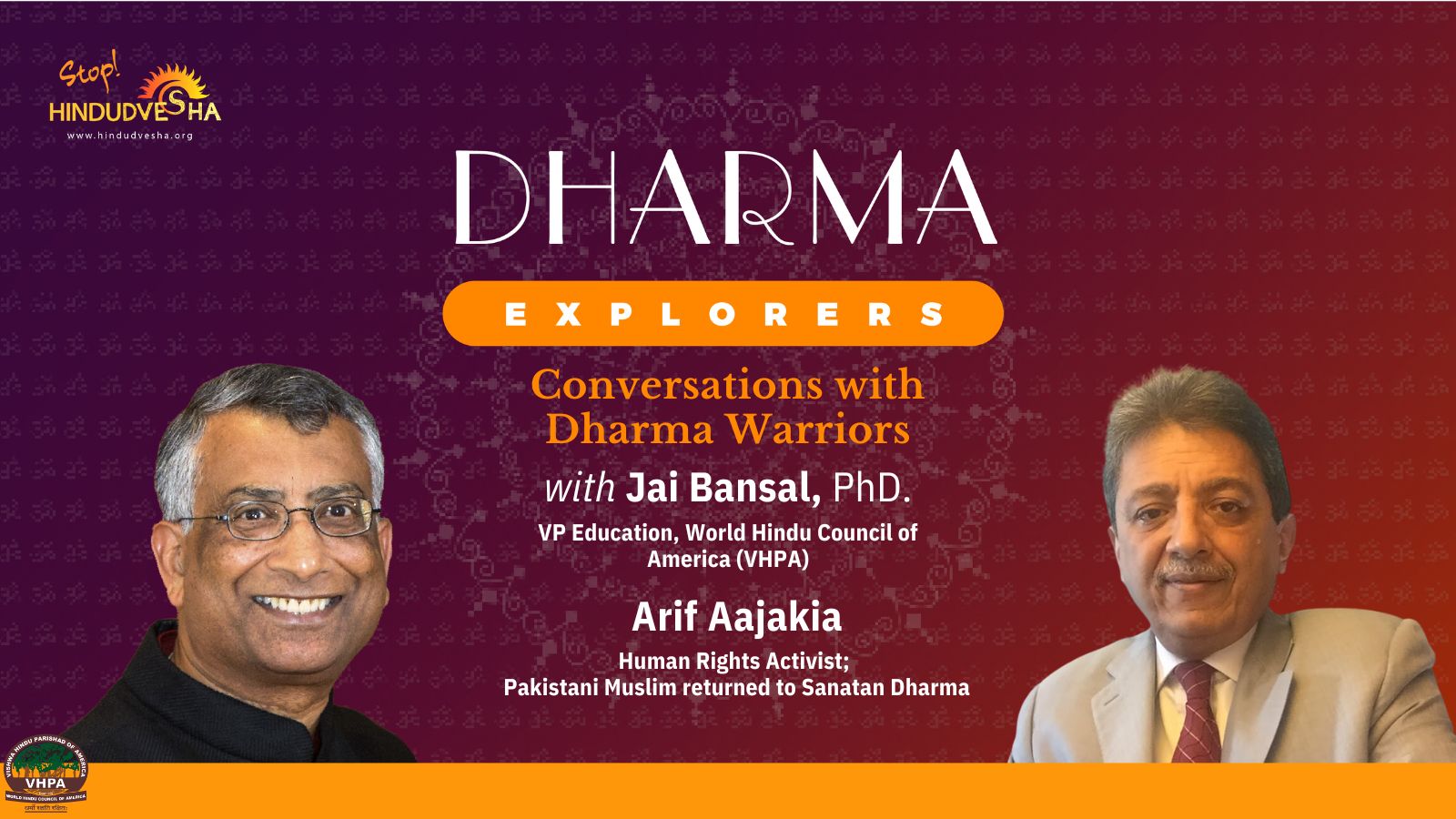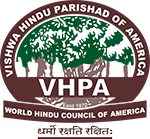

Dharma Explorers: Conversation with Arshia Malik
Conversation with Arshia Malik, a progressive Muslim voice in the discourse on Islam and Indian Society
This video and brief summary below encapsulate a riveting conversation hosted by Vishwa Hindu Parishad of America (VHPA), featuring the insightful Arshia Malik. Born in Srinagar and now residing in Delhi, Arshia, a Kashmiri Muslim woman, delves into her unique life experiences, from cultural shocks to profound reflections on identity, radical political Islam, and the evolving landscape of Indian society post-Article 370. This dialogue navigates through history, personal narratives, and the quest for reform, offering a nuanced exploration of coexistence and change. Don’t miss this thought-provoking exchange on navigating tradition, reform, and identity in modern India.
“The more you [Hindus] take pride in your roots, the more it’s safer for us progressive Muslims, especially Muslim women” – Arshia Malik
Brief Summary
Arshia Malik, born in Srinagar but raised in New Delhi, shares her unique perspective shaped by a cosmopolitan upbringing and a cultural shock upon returning to the insurgency-hit Kashmir of the 1980s. Growing up in a liberal environment, Arshia’s worldview underwent a significant transformation when exposed to the isolated and ideologically rigid society of Kashmir. Despite the valley’s natural beauty acting as a barrier to external influences, it also limited exposure to global cultures and ideas, fostering a sense of geopolitical isolation among its residents.
Arshia reflects on the era of the 1980s and 90s in Kashmir, marked by domestic violence, terrorism, and the controversial Article 370, painting a vivid picture of life under the shadow of militancy. She debunks myths about the imminent genocide of Muslims post-Article 370 revocation, highlighting the misplaced fears propagated by organizations with ties to the Muslim Brotherhood. Arshia’s narrative brings to light the complexities of Kashmiri society, entangled in geopolitical strife, religious radicalism stemming from external influences like the Afghan spillover, and the Iranian Revolution of 1979.
Her personal experiences, from witnessing stone pelting as a child to observing the rapid ideological shift towards Jihad among peers, underline the transformation of Kashmir’s socio-political landscape. Arshia critically examines the justification of Jihad in a region where religious practices were never hindered, pointing to the dissonance between her Sufistic upbringing and the violent insurgency that ravaged her homeland.
Post the revocation of Article 370, Arshia remains skeptical about the prospects of peace and reform in the valley. Her skepticism is rooted in the enduring nature of Islamism and the scars left by decades of violence. Despite signs of improvement and a growing alignment with India among the youth, she cautions against underestimating the resilience of regressive ideologies.
Arshia’s journey from silent observer to vocal critic of the regressive forces within Islam and Kashmiri society exemplifies her courage. Facing backlash on social media and threats in real life, she champions the cause of reform within Islam, advocating for a uniform civil code to ensure equality and justice for Muslim women. Her personal struggles with Sharia laws and inheritance rights further illuminate the challenges faced by women under Islamic jurisprudence.
Despite identifying as a Muslim and a woman, Arshia navigates her identity beyond the traditional definitions of minority, finding resonance with the silent majority of progressive Muslims in India. She emphasizes the need for platforms to amplify these voices, advocating for critical thinking and reforms akin to the Charvaka traditions in Hinduism.
The emergence of voices of reason within the Muslim community, both in India and globally, marks a significant shift towards challenging fundamental Islamic beliefs. Arshia situates herself within this movement, drawing parallels with historical reformers who dared to question orthodoxy. She underscores the potential for a “Muslim Spring,” inspired by the Arab Spring, yet remains cautious, given the historical tendency for reform movements within Islam to be hijacked or diluted.
Addressing the alliance between Muslims, leftists, liberals, and Ambedkarites against a perceived anti-Hindu narrative, Arshia discerns a complex web of ideological convergence aimed at undermining Hindu society. She critiques the exploitation of liberal values by radical political Islam, urging Hindus to take pride in their heritage and resist the regressive forces seeking to erode India’s civilizational ethos.
In her message to Hindu society, Arshia calls for awareness and resilience against adversaries, particularly radical political Islam. She highlights the importance of unity and pride in one’s roots to create a secure environment for all citizens, especially Muslim women, and dissenters. Arshia’s narrative is a testament to the power of individual agency, critical thinking, and the relentless pursuit of truth and justice in the face of adversity and ideological rigidity.
About Arshia Malik
Arshia Malik is an influential writer, blogger, and social commentator. She hails from Srinagar and is currently based in Delhi. Her areas of expertise and focus include Muslim women’s issues and conflict zones in India, with a particular emphasis on the complex dynamics in Kashmir. In addition to her writing career, Arshia ji is also a Consulting Editor for The New Indian and an avid collector of progressive literature of Muslim heritage.
She regularly contributes to reputable publications such as The New Indian, Swarajya, News18, and Firstpost. She has earned recognition for her insightful commentary on a range of subjects related to sharia, Muslim women, Islam, and the broader South Asian context.



